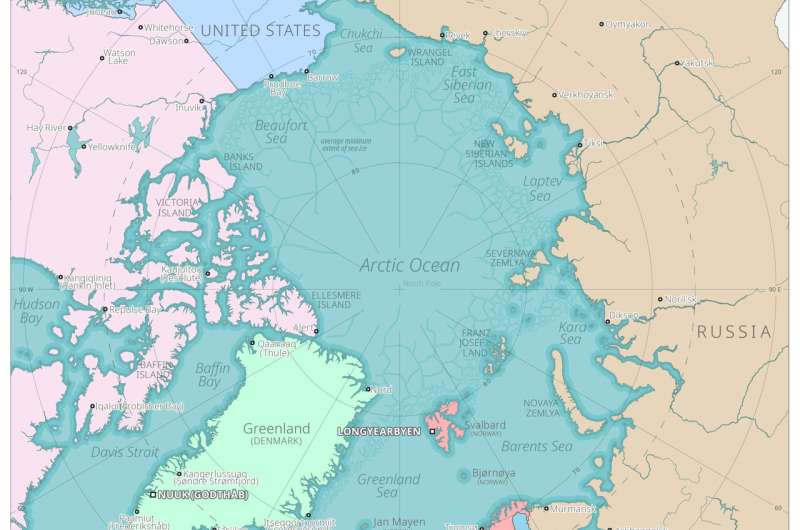This article has been reviewed according to Science X's editorial process and policies. Editors have highlighted the following attributes while ensuring the content's credibility:
fact-checked
proofread
Arctic cooperation at a standstill because of Russia's war in Ukraine: Report

A new ZOiS Report analyzes the various effects of Russia's war against Ukraine on the Arctic region. The authors also assess how a baseline of coordination with Russia on the vital issues of security and climate change could be re-established for the sake of the common good.
The full-scale Russian invasion of Ukraine on 24 February 2022 sent shockwaves around the globe and has also brought fundamental changes to the Arctic region. In the months after the invasion, Western Arctic states suspended most economic and scientific cooperation with Russia, and the Arctic Council, the region's key intergovernmental forum, is currently unable to function as an interface between science and politics.
International Arctic researchers are now cut off from more than 60% of their research region, and data exchange with former Russian partners is impossible. The long-term consequences of this could be drastic, as Arctic warming is an important indicator for global climate developments, and without data exchange it will be impossible to model the broader impacts of climate change.
Given the urgency of the climate crisis, the authors of this report recommend that data exchange be facilitated by non-state third parties like the Intergovernmental Panel on Climate Change (IPCC) or the International Council for the Exploration of the Sea (ICES).
Arctic security dilemma older than the war
Rising political and military tensions in the Arctic predate the full-scale invasion of Ukraine and stem from Russia's assertion of its perceived security needs in the region. The re-militarization and re-securitization of the Arctic that the Putin regime has pursued over the last 20 years have prompted countermeasures by Western Arctic states.
Now caught up in a war of its own making in Ukraine, Russia is hard pressed to realize its great power ambitions in the Arctic and is increasingly resorting to nuclear rhetoric and hybrid threats. While the likelihood of military escalation in the region is low, the authors stress the need for an Arctic Military Code of Conduct. In the meantime, existing bilateral treaties from the Cold War era on crisis communication and the prevention of military escalation should be reactivated.
Energy geopolitics in the Arctic
In the field of energy politics, the bifurcation of the Arctic into a Russian-Asian Arctic and a European and North American Arctic is becoming apparent. When Western sanctions led some Western firms to disengage from the Russian energy market, Russia looked to non-Western countries like India and China for the investment, skilled labor and technology it requires to realize important energy projects in the Arctic.
For Western Arctic states, energy independence from Russia was a priority, and Norway has become the EU's main gas supplier. In a two-pronged strategy necessitated by the war, these states are continuing to develop fossil fuels while also supporting renewable energy projects.
Arctic Indigenous peoples increasingly vulnerable
Even before February 2022, Arctic Indigenous populations were a particularly vulnerable segment of the Arctic population. Their problems have now been compounded by the war in Ukraine. With the paralysis of the Arctic Council, they have lost their main platform for multilateral engagement in the region. They are also feeling the effects of war-related inflation, energy supply issues and interrupted supply chains.
Indigenous communities in the Russian Arctic have, moreover, been a particular focus of Russia's recruitment policy, and a disproportionately high number of men from these communities have died in Ukraine. There are hopes that under the current Norwegian chairship of the Arctic Council, this governance body will renew its efforts to advocate for their rights.
More information: New Arctic Realities: Between Conflicting Interests and Avenues for Cooperation
Provided by Zentrum für Osteuropa- und internationale Studien (ZOiS)





















